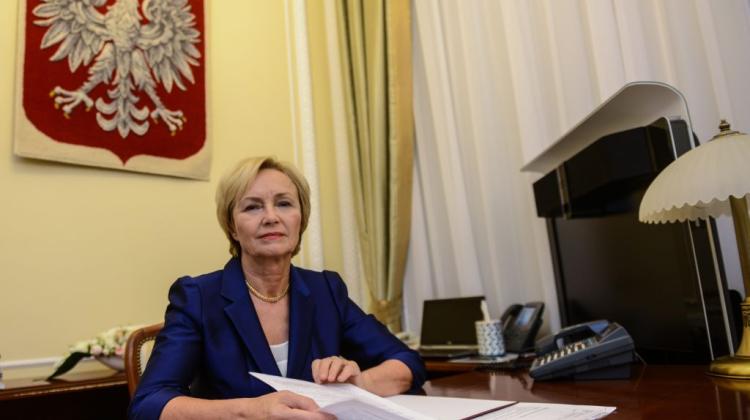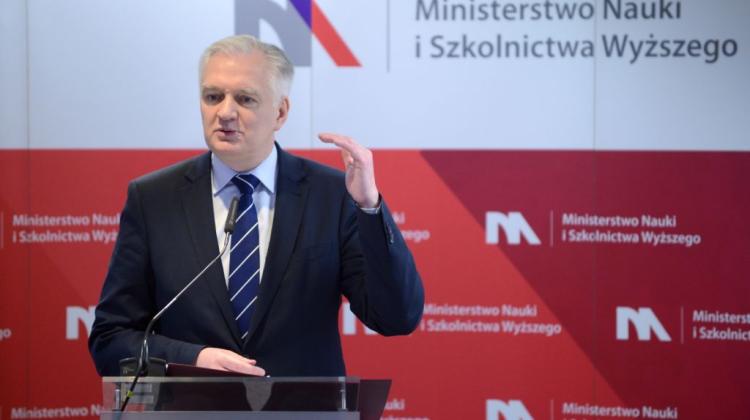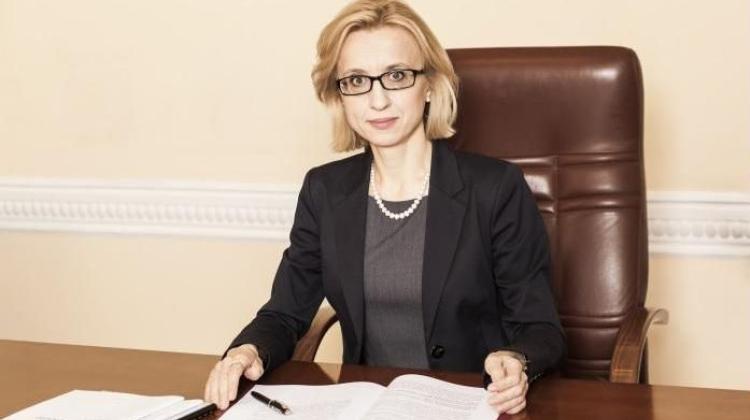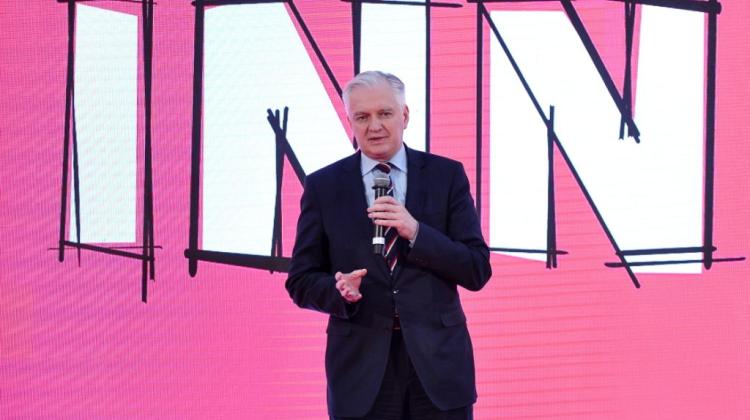Kolarska-Bobińska: EU money for the mechanisms linking business with science

We want to spend EU funds for the creation of permanent mechanisms for cooperation of universities with business - said Minister of Science and Higher Education Lena Kolarska-Bobińska, presenting the ministry ideas for better use of innovation in the economy.
"One of our key priorities is a good use of EU funds. The idea is not to simply spend them, but use them to change the whole system: firstly, thinking about innovation, and secondly, connecting science and business" - emphasised head of the Ministry of Science and Higher Education at a meeting with entrepreneurs from the American Chamber of Commerce in Poland.
She announced that her ministry was working on appropriate tools to address these issues. They would ensure that the money from the 2020 financial perspective of the EU serve the development of an appropriate support system for the cooperation between companies and the scientific community. The objective is to run the mechanism that will generate more innovation in the economy after the EU money run out.
"In the United States, mechanisms for cooperation between science and business are natural, profitable and relatively simple. Unfortunately, it does not work like that in Poland" - said Kolarska-Bobińska. In her opinion, we need to create a platform that would connect scientists and businessmen and help them work together. She announced that after the holidays the government would be ready to present economical solutions.
Kolarska-Bobińska noted that our scientists had not been active enough with regard to obtaining EU funds from programmes such as Horizon 2020. "We are among the last in Europe in terms of the use of these funds" - she noted. In her view, the problem was that too few lecturers or groups of scientists applied for these grants, but also many applications were rejected. According to Kolarska-Bobińska, the Ministry is analysing the reasons for this state of affairs and will make appropriate proposals following the discussion on the subject.
The Minister also reminded about other ideas to help commercialise the ideas of scientists. These include an increase to 75 percent of intellectual property rights for employees, students and doctoral students engaged in research or R&D work.
The authors of the proposal argue that this will increase researchers’ interest in entering into contracts with businesses and profiting from the commercialisation of their ideas.
Today, in accordance with the regulations concerning intellectual property at universities, the owner of the invention can generally receive 50-60 percent profits from commercialisation. In return, he or she can count on greater support of the university or polytechnic, for example when it comes to patent protection and the costs of administrative proceedings.
The Minister urged the entrepreneurs to take advantage of the potential of Polish scientific institutions. She explained that many institutions had used EU funds to build very good infrastructure, such as research laboratories, and now these institutions are looking for partners to put them to good use.
Another idea mentioned by Kolarska-Bobińska is a division of universities into vocational and academic schools. From among academic institutions the ministry would select good research institutions that would serve the innovative economy. On the other hand, the ministry would develop schools which prepare well for professional life. These would include state vocational schools and other institutions that do not have the right to confer the title of Doctor.
Kolarska-Bobińska emphasized that internationalisation would also help our education. But it is not just about bringing students from other countries, but also sending our students abroad. She announced that she had met with the U.S. Ambassador to Poland and the possibility of Polish technical universities receiving teaching certificates of American universities. She emphasized that this solution was already being used by Polish medical schools.
Poland is in the penultimate group of countries in the European Commission innovation ranking. Behind us are only Romania, Latvia and Bulgaria. Innovation leaders are Denmark, Germany and Finland; these countries have highest investments in research and innovation.
PAP - Science and Scholarship in Poland
stk/ pad/ gma/
tr. RL
Przed dodaniem komentarza prosimy o zapoznanie z Regulaminem forum serwisu Nauka w Polsce.


















